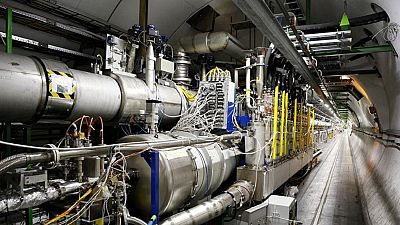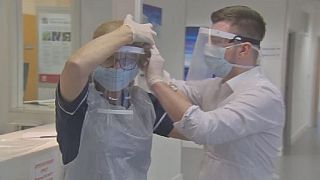Astrophysics
The Large Hadron Collider (LHC) is back in action at the European Organization for Nuclear Research (CERN) after a 3-month technical stop for maintenance.
Scientists hope now that, the largest accelerator in the world will continue to open the path for new discoveries in fundamental Physics by providing up to 1 billion proton-proton collisions per second.
Large Hadron Collider back in business #LHC
CERNeuronews https://t.co/E5JyOUFnjG pic.twitter.com/PaTRTTrfTM— The Physics Quiz (@ThePhysicsQuiz) April 8, 2016
Machine coordinator at CERN, Mike Lamont explained that: “We really had to reboot the whole machine in 2015 and that was a lot of hard work to do all that. This year, after a 13 week stop we expect things to be a lot easier and they have proven to be easier.”
“The parenthese has gone well, machine check out has gone well,” he added.
Beams are made of “trains” of proton bunches moving at almost the speed of light around the 27 kilometre ring of the LHC.
By sending bunches around the ring, the LHC is able to generate collisions, from which scientists study the basic constituents of matter, the so-called fundamental particles, to try to provide answers to elusive concepts about the origin of the Universe and its composition.
“For sure 2016 will be a very exciting year. I expect a lot of data. (2016) is called the “Luminosity Production Year” because we will push the luminosity. So I expect a huge amount of beautiful physics results,“Fabiola Gianotti, Director-General of CERN said.
Among these new results could be a potentially ground-breaking discovery which scientists are currently giving a second look at: a possible new fundamental particle first sighted late last year.
If proven, its existence would profoundly reshape existing physics theories.
Euronews














02:02
Could AI help fight mosquito-borne diseases?
02:20
Ancient DNA reveals genetic link between early Egypt and Mesopotamia
Go to video
Global Heat Report: Climate change fuels silent killer
01:43
Snake Man: His Immunity Might Cure Bites
Go to video
Dicovery: scientists believe mystery fossil is Denisovan, early human ancestor
01:45
Scientists use new technology and AI to discover animal intelligence